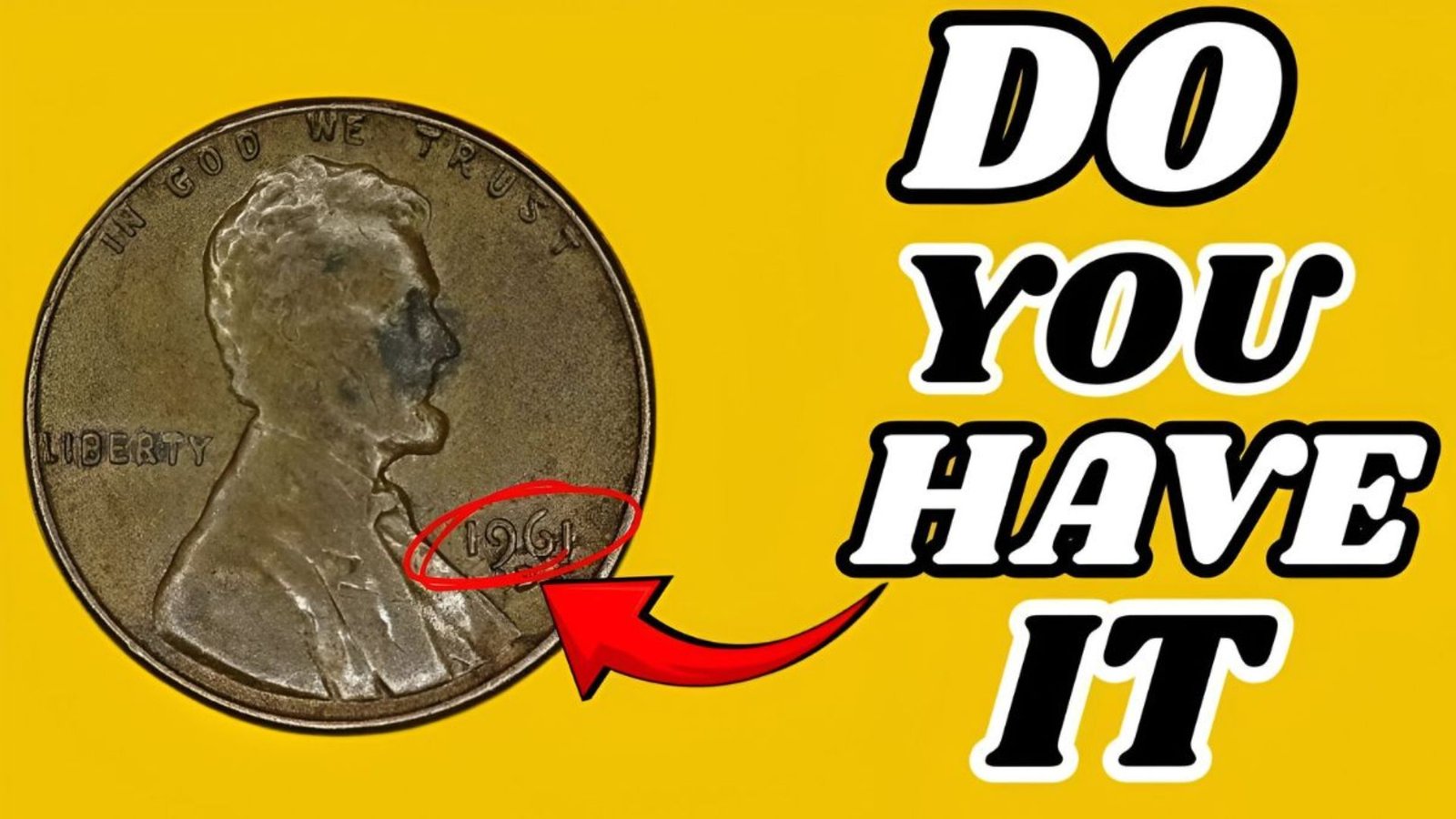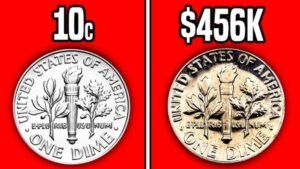Hey there, coin enthusiasts! Imagine reaching into your pocket for some loose change and pulling out a tiny penny that’s actually a $121 million treasure. Sounds like a dream, right? The Lincoln Wheat Penny, a classic piece of American history, has collectors buzzing with excitement.
In this post, we’ll dive into why this rare coin could be hiding in your everyday cash, what makes it so valuable, and how you can spot one. Stick around to uncover the secrets of numismatics and maybe even turn your spare change into a fortune!
What Is the Lincoln Wheat Penny?
The Lincoln Wheat Penny is an iconic one-cent coin minted by the U.S. from 1909 to 1958. It features Abraham Lincoln’s profile on the front and two wheat stalks on the back—hence the “Wheat” nickname. This rare coin design was groundbreaking as the first to honor a U.S. president. Billions were produced, but certain varieties stand out as numismatic gems due to errors or low mintage.
Most folks overlook these pennies in their change jars. Yet, a single rare Lincoln Wheat Penny can skyrocket in value, turning everyday finds into collector’s gold. If you’re into rare coins, this is your gateway to the hobby.
The Fascinating History of the Lincoln Wheat Penny
Introduced in 1909 to celebrate Lincoln’s 100th birthday, the Wheat Penny was designed by Victor David Brenner. His initials “V.D.B.” on early versions caused controversy, leading to quick changes. During World War II, copper shortages prompted a switch to steel in 1943—but a few accidental copper strikes created ultra-rare errors.
From 1909 to 1958, over 20 billion Wheat Pennies circulated, embedding them in American culture. The design ended in 1959, replaced by the Lincoln Memorial cent. Today, the Lincoln Wheat Penny’s origin story fuels its appeal in the numismatic world, blending history with hidden treasures.
Why the Lincoln Wheat Penny Is So Valuable Today
In today’s market, a rare Lincoln Wheat Penny can fetch eye-popping prices, with rumors of one valued at $121 million still circulating. Rarity drives this: low-mintage dates or mint errors like the 1943 copper version make them priceless. Collectors prize pristine condition, graded by services like PCGS.
With inflation and digital payments rising, physical rare coins like the Lincoln Wheat Penny offer tangible investment value. They’re not just money—they’re pieces of history that could appreciate wildly, appealing to hobbyists and investors alike.
| Rare Lincoln Wheat Penny Varieties | Key Feature | Estimated Value (Pristine Condition) |
|---|---|---|
| 1909-S VDB | Designer’s initials on reverse | Up to $150,000 |
| 1914-D | Low mintage from Denver | $200,000+ |
| 1943 Copper (Bronze Error) | WWII minting mistake | $1.7 million (auction record); rumored up to $121 million |
| 1955 Doubled Die Obverse | Visible doubling on date | $100,000+ |
How to Hunt for a Rare Lincoln Wheat Penny in Your Pocket
Ready to check your pockets? Start by sorting old coins from jars or banks. Look for Wheat Pennies dated 1909-1958 with “ONE CENT” encircled by wheat. Focus on key dates like 1909-S or 1943. Use a magnifying glass to spot errors—no need for fancy tools yet.
If you find a suspect rare coin, photograph it clearly and consult online forums or apps. For real value, get it authenticated. Engaging with the numismatic community can turn a hobby into profit— who knows, your Lincoln Wheat Penny might be the one!
Notable Facts and Auction Records
Did you know only about 20 of the 1943 copper Lincoln Wheat Pennies exist? That’s what makes them legendary. Auction records show one sold for $1.7 million in 2010, but whispers of a pristine example hitting $121 million keep the buzz alive.
Billions of Wheat Pennies were minted, yet errors like doubled dies add rarity. Stats: The 1909-S VDB had just 484,000 produced—tiny compared to modern runs. These facts highlight why rare coin hunting is thrilling for hobbyists.
| Top Auction Sales of Lincoln Wheat Pennies | Year Sold | Sale Price | Variety |
|---|---|---|---|
| 1943-D Bronze | 2010 | $1.7 million | Copper error |
| 1909-S VDB | 2018 | $228,000 | Low mintage |
| 1955 Doubled Die | 2009 | $125,000 | Obverse error |
| Rumored Pristine 1943 Copper | N/A | Up to $121 million | Speculative |
Expert Tips for Numismatic Beginners
Numismatists swear by condition: Uncirculated coins shine brightest. Store your finds in albums away from air—oxidation kills value. Join clubs like the American Numismatic Association for insights. Don’t clean coins; it reduces worth. Start small: Buy certified rare coins to learn. Remember, patience pays off in this hobby!
Frequently Asked Questions (FAQs)
What makes a Lincoln Wheat Penny rare?
Errors, low mintage, or pristine condition—like the 1943 copper version.
How can I tell if my penny is valuable?
Check the date, mint mark (S, D), and look for doubling. Use online guides or apps.
Is the $121 million Lincoln Wheat Penny real?
It’s based on rumors and high-end estimates for ultra-rare specimens still possibly in circulation.
Where to sell a rare coin?
Auction houses like Heritage or eBay, but get it graded first.
Are all Wheat Pennies worth money?
No, common ones are just a cent, but keys can be thousands.
Conclusion
The Lincoln Wheat Penny isn’t just pocket change—it’s a window to history with the potential for massive rewards. We’ve covered its origins, value, and how to spot a rare gem that could be worth $121 million. Key takeaway: Always check your coins! Dive into numismatics, share this with fellow hobbyists, or explore more on rare coins. Who knows? Your next find could change everything. Happy hunting!




